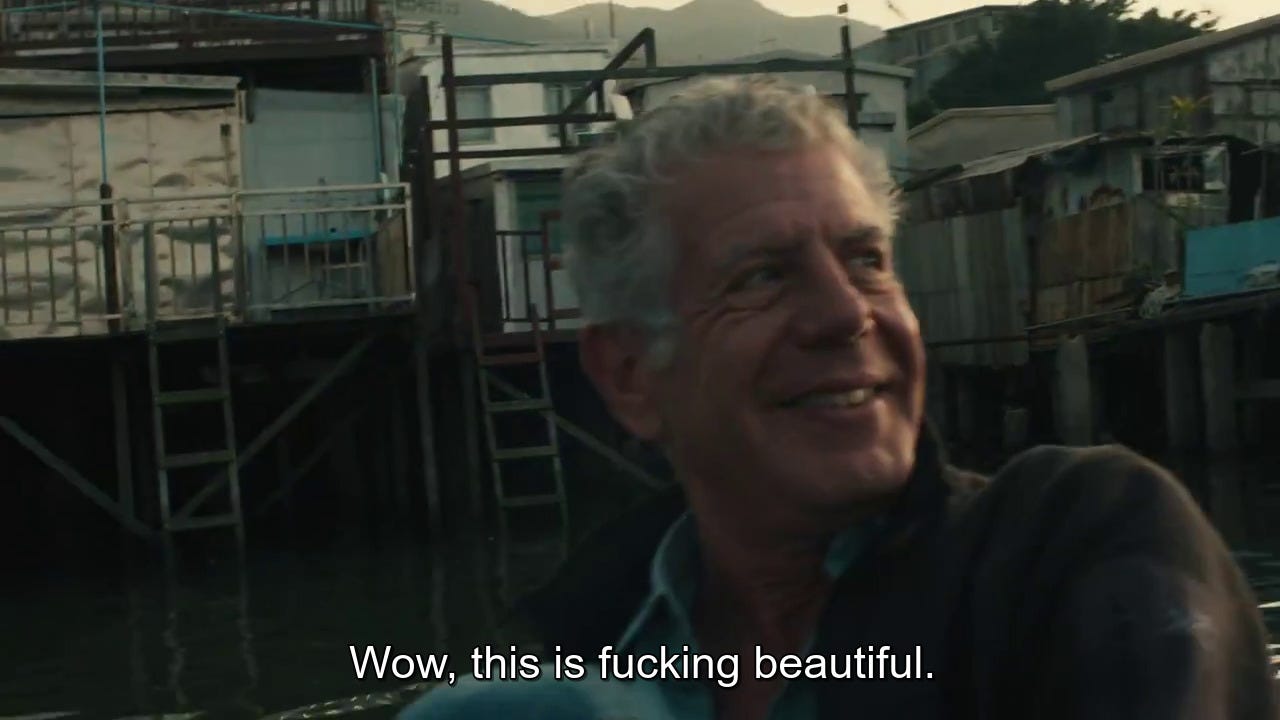Death is Real
Anthony Bourdain's text messages won't make you feel better.
Some weeks are ugly in media and some weeks are uglier still. It is the nature of the game that, for most of your time playing, you are wondering when it is going to get better. That’s the dragon you chase.
It is a gross world, and we are more out of touch with what we call consumption media than ever before. A string of death-notes from celebrities and actors and writers and artists, republished and refurbished to suit our culture’s carefully curated obsession for nostalgia. That is where we are now: so taken aback by the rapid spin of the cultural flywheel that nostalgia has become an opiate. And we are desperate.
There is a dangerous form of publishing upon us: one that moves beyond the traditional need for biopics and biographies and hidden and never-released paintings found in the attic. We are selling off catalogues to tech companies – Dylan, Springsteen, Bowie – and we are doing it readily and without pause. We are asking to know about who our idols are, rather than enjoying what they do. We want to know what makes a person – both in life and in death. It is no longer enough to read the investigations of others – we want the real deal. Old emails, suicide notes, final text messages, medical records. You can only pluck off the petals of a rose when it has finally made its mind up to bloom. And all of that was far too easy and far too quick, so much so that the world is already asking: what’s next, friendo?
Bourdain – Marilyn – Rickman: three names of the dead and buried who we have somehow demanded more pieces of. As if their existence was not enough; an act of service in debt to us all. We paid you all this attention, goes the mantra, you owe us this much. And so we read about how the personal diaries of an actor are set to be published, gleefully sharing quotes on Instagram and Twitter. We dissect how the final and personal text messages from a man who killed himself now belong to us, despite calls of defamation and of callousness. We ask for more from a woman whose life has been chronicled so readily and extensively it has become worth more to society than is likely measurable. The idea of Marilyn Monroe, chastened and tortured and brutally portrayed so Netflix can make its bag back. The tragedy of Bourdain, so saddened and confused by loss that the New York Times sees fit to publish an extensive essay riddled with morally heinous speculation, offering nothing other than to try to throw rocks at the stained-glass memory of an idol. The written thoughts of a respected actor, short and trite and real, which allow us to see who he really is. We are desperate and we are unashamed.
Not for me, kid.
It was not enough that we used artificial intelligence to construct the voice of a deadman so he could narrate a story he is no longer alive to tell. Is this the future we want? Does it matter?
It is the future we are building for ourselves.


